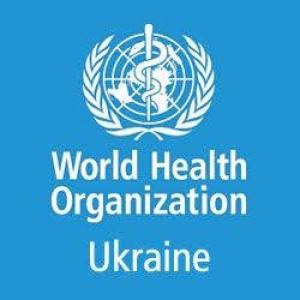Three stories of Ukrainian nurses on World Health Day
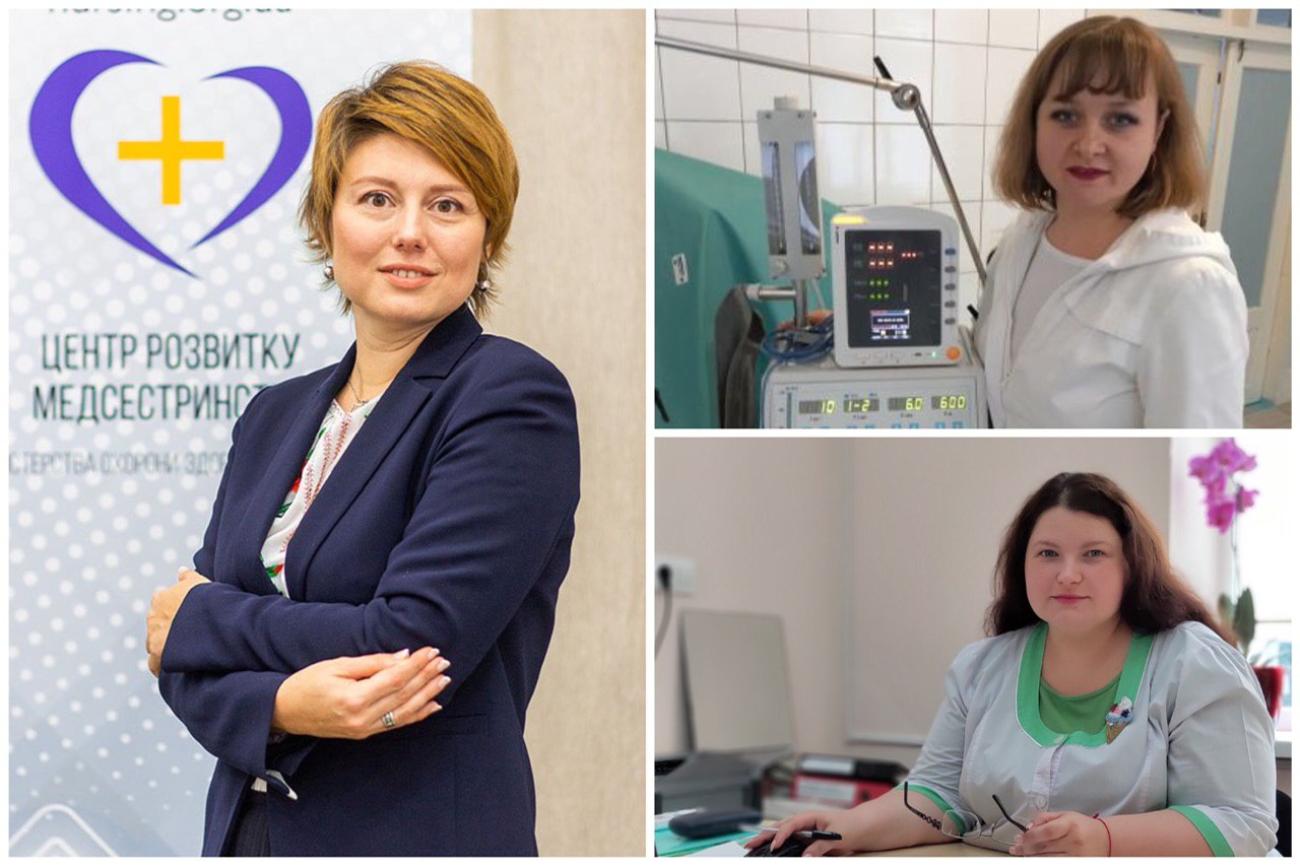
WHO interviewed three nurses about their work during the COVID-19 pandemic.
Today is the day to celebrate World Health Day. On this day, April 7, World Health Organization (WHO) was founded with the primary role to direct and coordinate international health within the United Nations system.
This year, which has been declared the Year of the Nurse and the Midwife in Ukraine and in the world, we want to emphasize the role of nurses who are now at the forefront of the fight against COVID-19.
WHO has prepared three stories of the nurses working in different areas of Ukraine for you. We want to show our appreciation for their bravery, courage and resolve in the global COVID-19 response.
Nadiya Labanda coordinates nurses in Ukraine’s COVID-19 epicenter
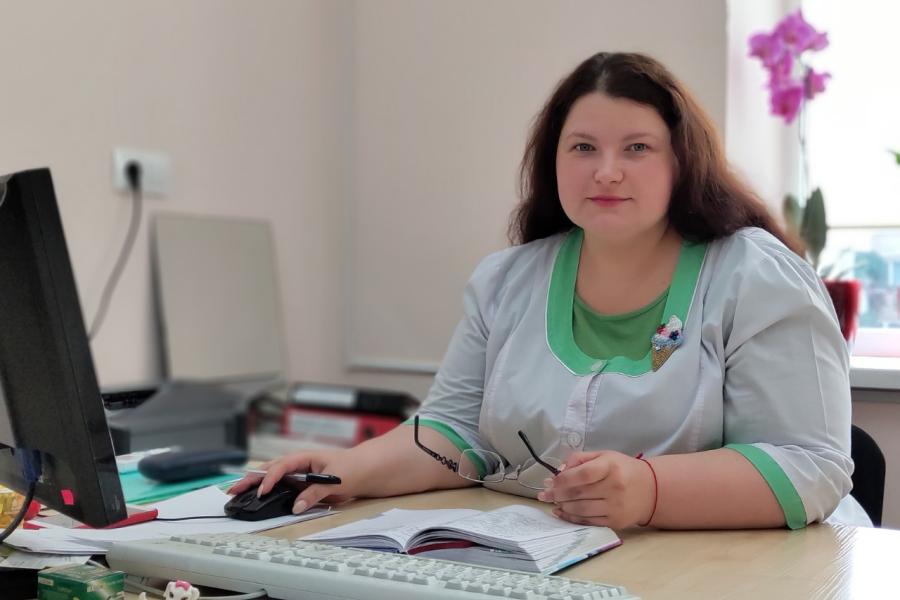
Chernivtsi Oblast in western Ukraine was the first to experience coronavirus disease in the country and now has the biggest number of confirmed COVID-19 cases after Kyiv. On March 11, WHO Country Office as part of the ongoing support to Ukraine to respond to COVID-19 delivered more than 7,000 protection kits to the Chernivtsi Oblast Hospital, including respirators, plastic gloves, goggles, and protection clothes.
“The first case of the coronavirus in Ukraine was revealed in Chernivtsi in early March. Now we have people 247 diagnosed with COVID-19 in our region, including healthcare workers. Khotyn district is now the most affected by the virus. Infected health workers come from that area.
Since February, I have been the Chief Nurse of Chernivtsi Oblast. I’m coordinating almost 7,000 nurses working here. About two weeks ago, at the beginning of the quarantine, I traveled around the region to check preparedness, conditions of care provision and infection control in the hospitals. Now, since travelling became even more restricted, I’m communicating with the nurses online or by phone.
I wish we were more ready and better supplied with personal protective equipment at the beginning of the epidemic. At this moment, we have necessary supplies thanks to the national, local authorities, and WHO. Some private donors have also bought antiseptics and detergents for hospitals and protective gowns for health workers.
Nurses are under high risk during this epidemic. They spend time treating patients and have more chances to get infected. I think that people will start realizing now how important the job of a nurse is. Patients have already started showing more gratitude. They tell me “thank you” more often in person or on social media.
I’ve always known I would become a nurse. When I was a child, I was looking at people wearing white medical gownss as if they were heroes.
I started my nursing career in the lowest position possible. When studying at a medical college in Chernivtsi, I worked as an orderly at a maternity hospital. But I wanted to achieve more. So, after graduating from college, I continued studying nursing at the university and eventually received a master’s degree in nursing. I want to show by my example that we are independent professionals on whose work the health of patients depends directly.
With this message, I spoke in June at the first national competition on the development of nursing in Ukraine, and I won a prize, receiving the third place in the ranking. I’m happy that medical experts heard my ideas because this gives us hope for change.
A few months after the competition I was asked to become the region’s chief nurse. Now I participate in certifying nurses and paramedics in Chernivtsi Oblast. I also teach remotely nursing to students of a college affiliated with the Odesa Law Academy. We are using the Google classroom.
Still, my main workplace is the Bukovyna regional children's rehabilitation center. We work with children with neurological diseases, predominantly cerebral palsy, from all over Ukraine. I manage 42 nurses working there. They are all very important because they work with children directly, and I’m glad that doctors at the center listen to their opinion.
My regular working routine starts with visiting children in the hospital, consulting nurses and discussing prescriptions for treatment. Then I have about three hours of certification work for nurses of the region and discussing plans and development projects.
Now, obviously, all the plans have been postponed until the end of the pandemic. Daily I’m contacting by phone or internet the head nurses of all the 11 districts of our region to discuss the spread of COVID-19. With the epidemic spreading, we are waiting for new government supplies of protection gowns that are now being manufactured. We hope we will get them in time.”
Kateryna Balabanova advocates for rights of nurses in Ukraine
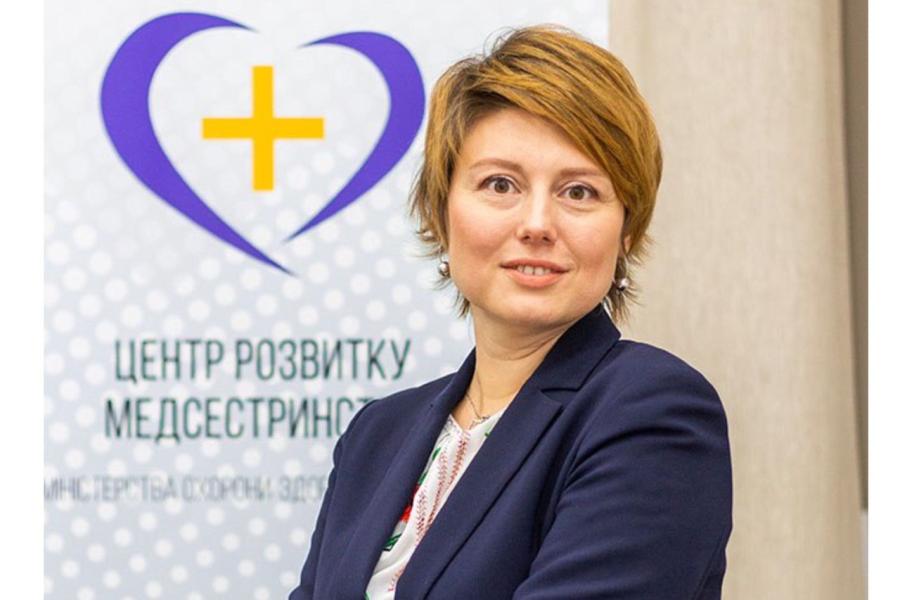
In 2019, Ministry of Health of Ukraine created the State Agency ‘Center for Nursing Development’, a state body responsible for defending the rights of nurses and midwives in the country's healthcare system. World Health Organization has supported the agency from its very start with training and education materials.
“We have about 313,000 nurses in Ukraine, which is 67% of all medical workers in the country. But our medical system is doctor oriented. This is depressing when you can’t influence decisions that directly impact you and your work process. I know this feeling of helplessness or inability to decide for yourself. In 2014, I had to flee Luhansk, my home city, to escape the military conflict in eastern Ukraine.
The conflict turned my life upside down. I lost my house, my job as a urologist at Luhansk hospital and most of my friends. The most painful thing was the loss of the usual social contacts I used to have. This is irredeemable.
I had to start my life from scratch in Kyiv, and I realized I can’t just keep doing what I used to do. I wanted to be involved in some global processes, something that no life circumstances would be able to take away from me. So, I volunteered as an adviser to the health minister to work for improvement in nursing and midwifery because I saw a real problem there. I initiated the creation of a new agency for nursing development in July and became its head.
I come from a medical family. My parents, as well as my grandparents, were doctors. When I was a child, I thought that all people study healthcare and work at hospitals. So, I have never thought about any profession other than a doctor.
But I’ve always had a great respect for nursing. I was brought up by my great grandmother, who worked initially as a midwife and then as a chief nurse in one district in Luhansk Oblast. From herI acquired the penchant for cleanliness, strict adherence to hygiene and the knowledge of how important nursing is.
Now, nurses stand on the frontline of defense against the coronavirus epidemic. They run a high risk of being infected, providing direct patient care which is not possible at a distance. The job of a nurse is to be next to a patient. Now, we have more than 20 healthcare workers infected with COVID-19 in Ukraine. Most of them are nurses.
Our agency and Vox Ukraine, an analytical platform, have recently made an educational video for nurses about rules on how to use masks, gloves, and anti-epidemic protective gowns in the right way. A lot of infections occur when health workers don’t know how to put protective gear on and off properly. We will share this video through the internet in the coming days.
After visiting all the medical universities and colleges in Ukraine, I can see that we need to develop nursing education and urge young and active people to work in this area. Few people know that nurses may have university education and a master's degree. I also currently study public administration at the Kyiv School of Economics. I believe that more skills in management will help me to make a difference in nursing.”
Nurse anesthetist Larysa Belykova faces challenges of military conflict, COVID-19 in Ukraine
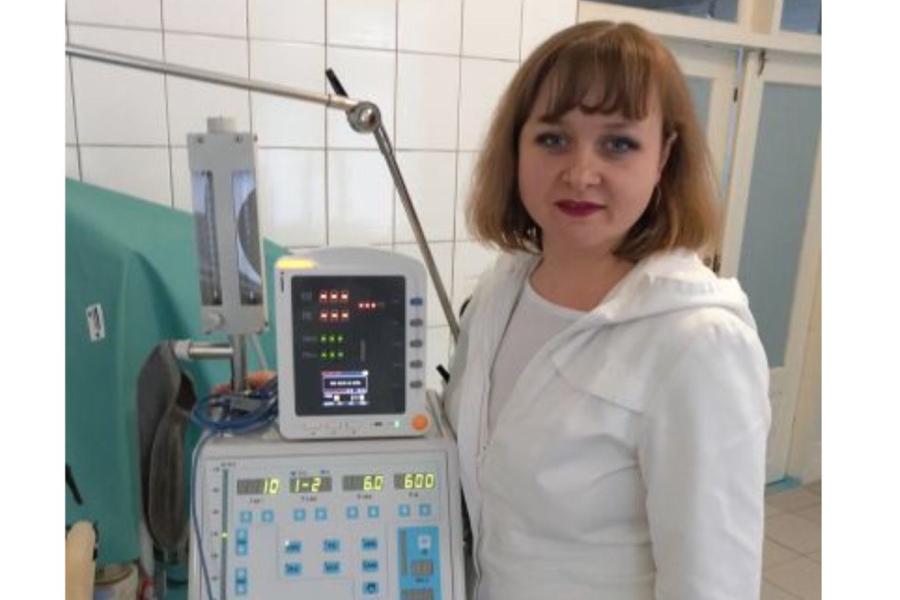
The Central District Hospital in the town of Volnovakha, which is just 34 kilometers from the frontline of Ukraine’s military conflict, provides specialized medical care to more than 150,000 people. In 2019, the hospital started having difficulties with oxygen supply, which is essential for surgery and intensive care units. In late 2019, WHO installed an oxygen generator at the hospital to make sure there is no disruption of life-saving care for patients. Additionally, WHO had donated core equipment for washing and disinfection of medical devices in the sterilization unit.
“Volnovakha is located on the highway connecting Donetsk and Mariupol, the two largest cities in our region. So, we’ve always had a lot of work with casualties of traffic accidents. But in 2014, when the war started, it became much worse. First, there were servicemen and civilians wounded during fighting and shelling. Then, we also had many patients injured by landmine explosions. It’s not just about work, we're used to intensive work, but it was also psychologically hard to see all that.
I'm a nurse-anesthetist. My working day starts at 8 a.m. with getting doctors' prescriptions and receiving instructions on where surgeries will take place on this day. Then I go to the operating theatre, prepare my workplace and start assisting with anesthesiology during surgeries. Quite often I stay there until late evening.
I became a nurse by accident. I wanted to study humanitarian sciences but lacked just one grade point to enroll at a university. And then a friend of mine suggested that I try myself at a medical college in Mariupol, and I went there.
I started working at this hospital when I was 19. I chose anesthesiology because I preferred doing practical things with minimum paperwork. This is a difficult and very responsible place of work, but it really allows me to show my skills.
Now, I’m 34 and I feel comfortable with my job. All my colleagues are about my age. We came here together, fell in love, started our families and had children at the same time. We have shared all major life events with each other, so now we are a close group, like a family.
Now we are facing another challenge -- the coronavirus disease. But fortunately, there have been no cases registered in Volnovakha so far. But we are preparing to treat COVID-19 patients. We have received masks, protective gowns and lots of instructions from the Ministry of Health. Every day, we have training sessions both for medics and residents on how to behave if the epidemic starts here.
The oxygen generator, which we received from WHO and started fully using in January, is helping us a lot. Before that, we had to use oxygen concentrators, which were bulky and less reliable. Oxygen concentrators work on grid power, and we often have electric disruptions in Volnovakha.
But now I just turn the oxygen generator on, connect it to an oxygen hose and oxygen comes. It doesn’t depend on the power grid. We use it in operating rooms, the resuscitation department, intensive care wards and maternity departments.
Now, with the COVID-19 epidemic in Ukraine, lung ventilators will be necessary for more people. Most ventilators work with oxygen. So, now that we have an oxygen generator, we are more confident that we will be able to help our patients.
Not everyone can work as a nurse. This profession requires hard work, willingness to help and respect for both colleagues and patients. Nurses do about 80% of medical manipulations. I hope our profession will become more valued in Ukraine someday.”
Written by
